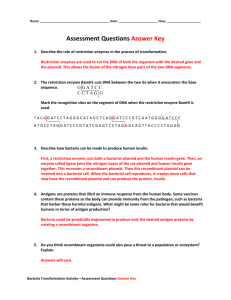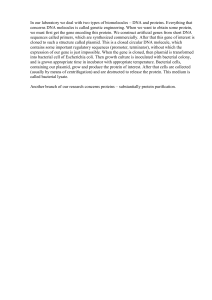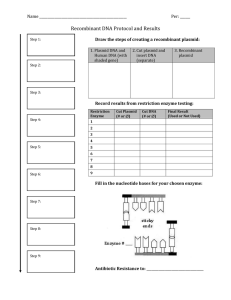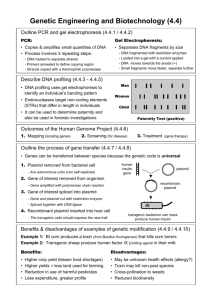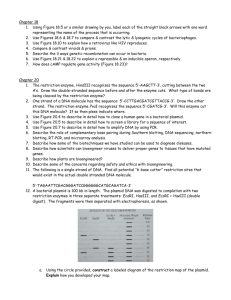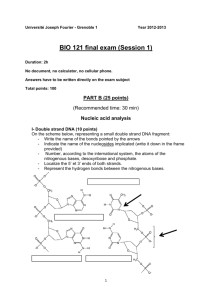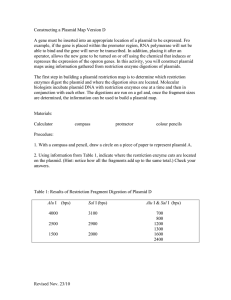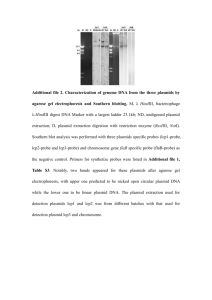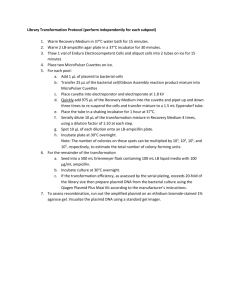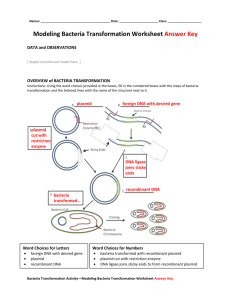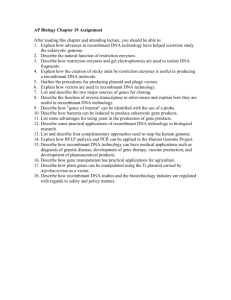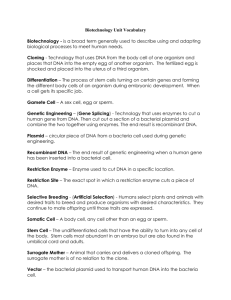A Bacterial Plasmid: What can you tell me about the plamid?
advertisement
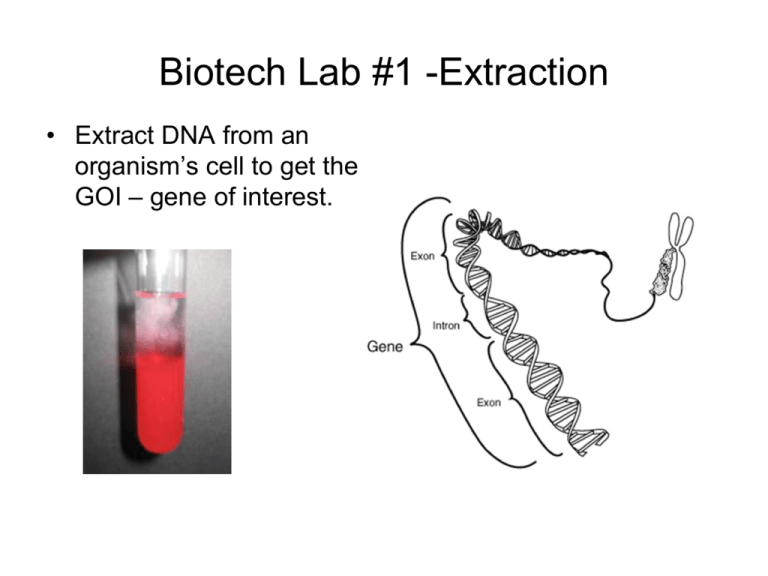
Biotech Lab #1 -Extraction • Extract DNA from an organism’s cell to get the GOI – gene of interest. Biotech Lab#2 – Restriction Enzymes • Send out DNA to determine the gene sequence • Locate the gene. • Cut out the gene using restriction enzymes. Biotech Lab #3 – Recombinant Plasmid • Remove plasmid from bacterial cell. • Use restriction enzyme (RE) open up the plasmid. • Use restriction enzyme to cut the gene out of on the organism’s DNA. Create sticky ends that are complementary to the plasmid’s sticky ends. • Insert the gene using ligase. How does one determine which RE’s to use? Illustration of Making a Recombinant Plasmid 1. 2. 3. 4. 5. What is the GOI? What restriction enzyme is use to cut the DNA samples? Why can the human and bacterium DNA combine? What types of DNA are found in the bacterial cell? What other genes may be found on the plasmid? The Luciferase Gene Bioluminescence and Fire flies Top Ten Bioluminescent Organisms The objective of this lab is to have you create a paper recombinant plasmid. You will use colored paper, scissors and tape. If you are successful, you will have a two colored paper ring and pieces of colored paper. A Bacterial Plasmid: What can you tell me about the plamid? How many restriction sites? How many antibiotic resistant genes? Can this plasmid make more copies of itself? Why? When? Is this a recombinant plasmid? Explain.
